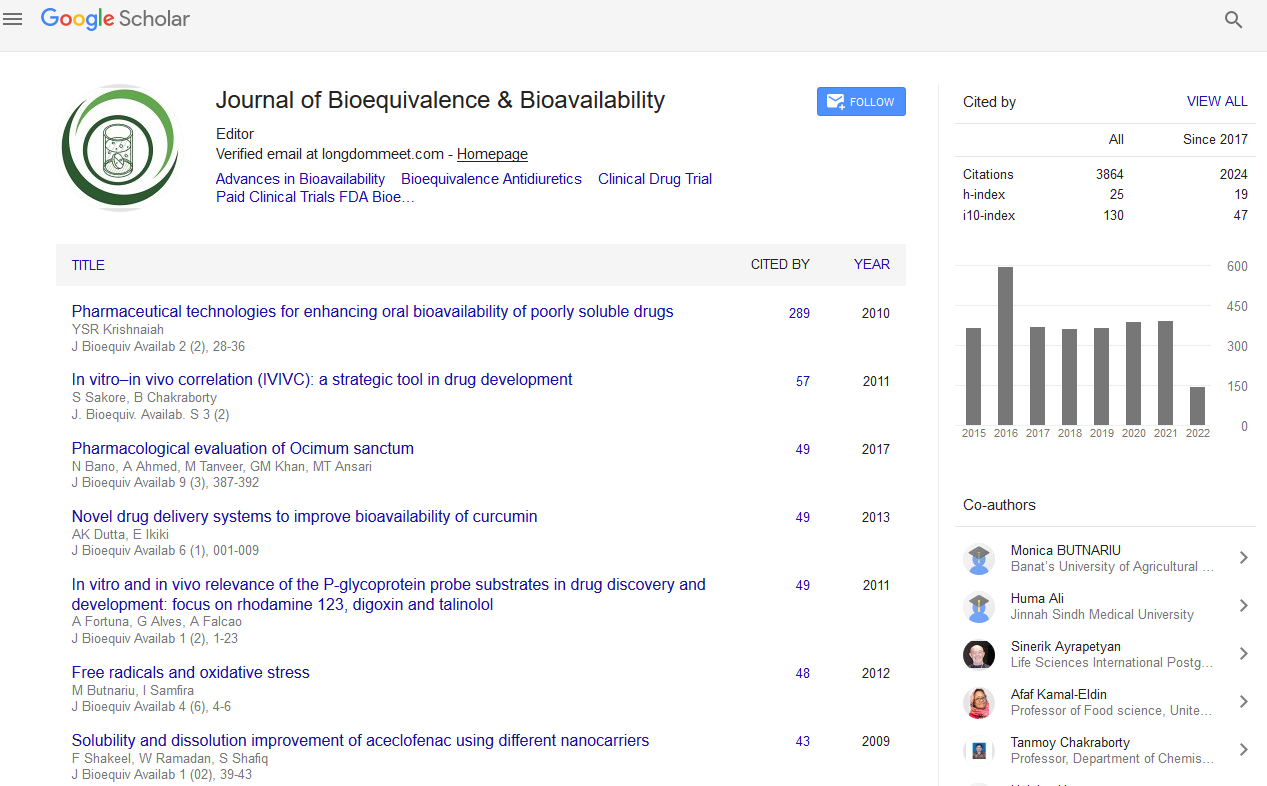PMC/PubMed Indexed Articles
Indexed In
- Academic Journals Database
- Open J Gate
- Genamics JournalSeek
- Academic Keys
- JournalTOCs
- China National Knowledge Infrastructure (CNKI)
- CiteFactor
- Scimago
- Ulrich's Periodicals Directory
- Electronic Journals Library
- RefSeek
- Hamdard University
- EBSCO A-Z
- OCLC- WorldCat
- SWB online catalog
- Virtual Library of Biology (vifabio)
- Publons
- MIAR
- University Grants Commission
- Geneva Foundation for Medical Education and Research
- Euro Pub
- Google Scholar
Useful Links
Share This Page
Journal Flyer

Open Access Journals
- Agri and Aquaculture
- Biochemistry
- Bioinformatics & Systems Biology
- Business & Management
- Chemistry
- Clinical Sciences
- Engineering
- Food & Nutrition
- General Science
- Genetics & Molecular Biology
- Immunology & Microbiology
- Medical Sciences
- Neuroscience & Psychology
- Nursing & Health Care
- Pharmaceutical Sciences
Accelerating preclinical development for poorly bioavailable compounds by assessing multiple oral technologies in parallel
7th World Congress on Bioavailability & Bioequivalence: BA/BE Studies Summit
August 29-31, 2016 Atlanta, USA
Stephen Tindal
Catalent, USA
Scientific Tracks Abstracts: J Bioequiv Availab
Abstract:
During the pre-clinical stage of the drug development process, scientists often face a set of challenges to deliver the desired quality target product profile (QTPP), with the top three being bioavailability (usually solubility), API availability and speed of execution. It may be necessary to partner with a variety of different companies, each with specific technologies, expertise and approaches. There may be a reticence to commit to enabling technologies, as it may be easier to begin with simpler strategies, like powder in a bottle and to iterate (with follow on approaches) once more data is available. However, in-house approaches may satisfy a desire for speed, they also run the risk of burning time and resources if ultimately not successful, and this is likely given the increasing number of poorly soluble molecules. It is increasingly essential to examine and rank multiple delivery options in parallel, to collect data about the relative dose capability, PK enhancement and manufacturability in order to select drug candidates to advance to clinical phase I. This talk will provide an overview of a structured assessment and parallel formulation feasibility assessment approach that is designed to reveal the most suitable pathway to enhance bioavailability and accelerate development by: Understanding the classification of poorly bioavailable compounds using the developability classification system; Understanding how a structured and high throughput parallel screening approach can expedite preclinical development; and to learn how enabling technologies such as lipid based formulation, solid dispersion and particle size reduction can be applied.
Biography :
Stephen Tindal holds a Bachelor’s degree in Chemistry and Analytical Science from Loughborough University, UK. He has worked at Catalent for 29 years, holding positions in R&D responsible for Formulation, Process Development and also for Clinical and Commercial Operations. He has specialized in solving Complex Data Analysis challenges such as Low Bioavailability and Atypical Analytical Data. He is the part of Catalent’s Science and Technology Team at New Jersey, USA.


